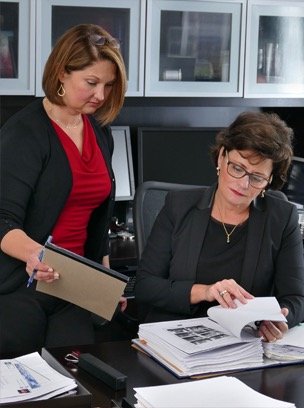Are Mothers More Likely to Get Child Custody During a Florida Divorce?

The laws in Florida have changed in recent years concerning divorce and custody of children. Traditionally, Florida family courts relied on the “tender years” doctrine that favored the mother in considering child custody. It was assumed the mother was better to fill the role as the primary caregiver during a child’s early years, that is, unless she was shown to be unfit.
Under that doctrine, the Florida Bar reports that mothers received primary custody in about 90 percent of cases. Today things are different, and Florida courts do not automatically assume the mother should be awarded primary custody.
Fathers should know that they have a real chance to be a presence in their children’s lives following a divorce if they are a fit and loving parent.
Is There Bias in Florida Courts?
Florida courts have set aside the “tender years” doctrine in favor of both parents having “frequent and continuing contact” with both parents after their divorce.
Leaning toward shared custody assumes both parents are mentally, emotionally, and financially stable and will not put the child in harm’s way.
The new unbiased theory was formalized in Florida Statute 61.13 (2) (b) (1), and since then, the courts do not favor either parent in a timesharing schedule for child custody.
The term “timesharing” has replaced “custody” in that both parents are encouraged to create a schedule around the children so both parents can be actively involved in their lives.
Today, instead of facing automatic bias in court, fathers should be in equal standing.
If the parents are not married, there is a tendency to grant the mother primary custody over the children; however, if the father’s name is on the birth certificate, he should hold equal rights before the court.
Changing Times
Previously, the theory was most fathers worked outside the home, and mothers stayed home with the children.
Today that has changed as we know now:
- About 75% of women with children under the age of 14 work outside the home, according to the U.S. Department of Labor.
- Many mothers make more money than their partners.
- Covid has both male and female employees working away from the office and remotely at home.
- The assumption that women are always better parents is not necessarily true.
- Children with absent fathers are more likely to have behavioral problems.
- Children whose fathers are around more often get better grades and are more emotionally and intellectually mature.
This does not mean that all judges understand changing times, and some may still apply the tender years doctrine out of bias and tradition.
In court, some more traditional judges also may feel that children should not testify because it causes stress. However, if the judge inquires whether the child is emotionally and intellectually mature enough to have a valid opinion, the child may feel empowered if they can share which parent they want to be the primary caregiver. In fact, instead of the stress of conflicted parents, divorce may lead to relief as the child no longer has to live with uncertainty.
Relying on universal, traditional rules may ultimately make a judge’s job easier, but it is not always in the child’s best interest.
Your Florida Family Lawyer
Ultimately, for each parent to spend quality time with the children, it will require a great deal of cooperation between the parents. The former spouses should develop a parenting plan that gives them access to the children to the degree they are able and willing to handle.
Parents who stay active in their children’s lives will be putting their children first, which ultimately is in the best interest of everyone.
Crystal Collins Spencer has decades of experience helping clients reach a workable parenting plan, covering all the bases, and aiding them when there are complications.
Your financial future, the marital home, visitation – all of these are areas that can benefit from the experience and careful consideration Ms. Spencer adds as your legal advocate and advisor. This is not a time to try and go it alone.
Call the Spencer Law Group at our Pensacola, Florida office to begin the conversation about your future at (850) 795-4910. You may also send us an online message with information about your case.
Sources:
Fl Bar
https://www.floridabar.org/the-florida-bar-journal/child-testimony/


